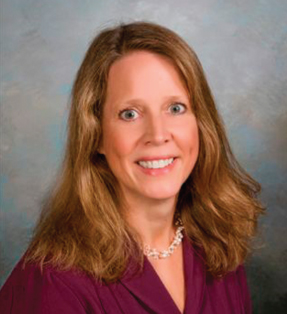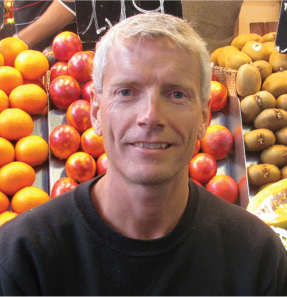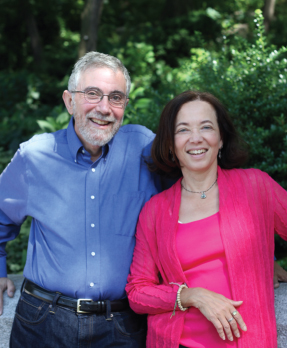About the Authors
iv

Margaret Ray is Professor of Economics and Director of the Center for Economic Education at the University of Mary Washington, where she specializes in teaching introductory economics. She received her BS in Economics from Oklahoma State University and her PhD in Economics from the University of Tennessee. In 2012 she received her MEd in Curriculum and Instruction and became certified to teach K-

David Anderson is the Paul G. Blazer Professor of Economics at Centre College. He received his BA in Economics from the University of Michigan and his MA and PhD in Economics from Duke University. Anderson has been involved in the AP® Economics program for two decades. For five years he led the grading of one or both of the AP® Economics exams, and he speaks regularly at AP® conferences and workshops. He has authored dozens of scholarly articles and many books, including Cracking the AP® Economics Exam, Economics by Example, Favorite Ways to Learn Economics, Environmental Economics and Natural Resource Management, Economics in Modules, and Explorations in Economics. His research is primarily on economic education, environmental economics, law and economics, and labor economics. Anderson teaches courses in each of these fields and loves teaching introductory economics. His favorite hobby is running, and he competes in marathons and triathlons. He lives in Danville, Kentucky, with his wife and two children.
v

Paul Krugman, recipient of the 2008 Nobel Memorial Prize in Economic Sciences, recently moved from Princeton University, where he taught for 14 years, to the Graduate Center of the City University of New York. In his new position, he is associated with the Luxembourg Income Study, which tracks and analyzes income inequality around the world. He received his BA from Yale and his PhD from MIT. Before Princeton, he taught at Yale, Stanford, and MIT. He also spent a year on the staff of the Council of Economic Advisers (1982–
Robin Wells was a Lecturer and Researcher in Economics at Princeton University. She received her BA from the University of Chicago and her PhD from the University of California at Berkeley; she then did postdoctoral work at MIT. She has taught at the University of Michigan, the University of Southampton (United Kingdom), Stanford, and MIT.